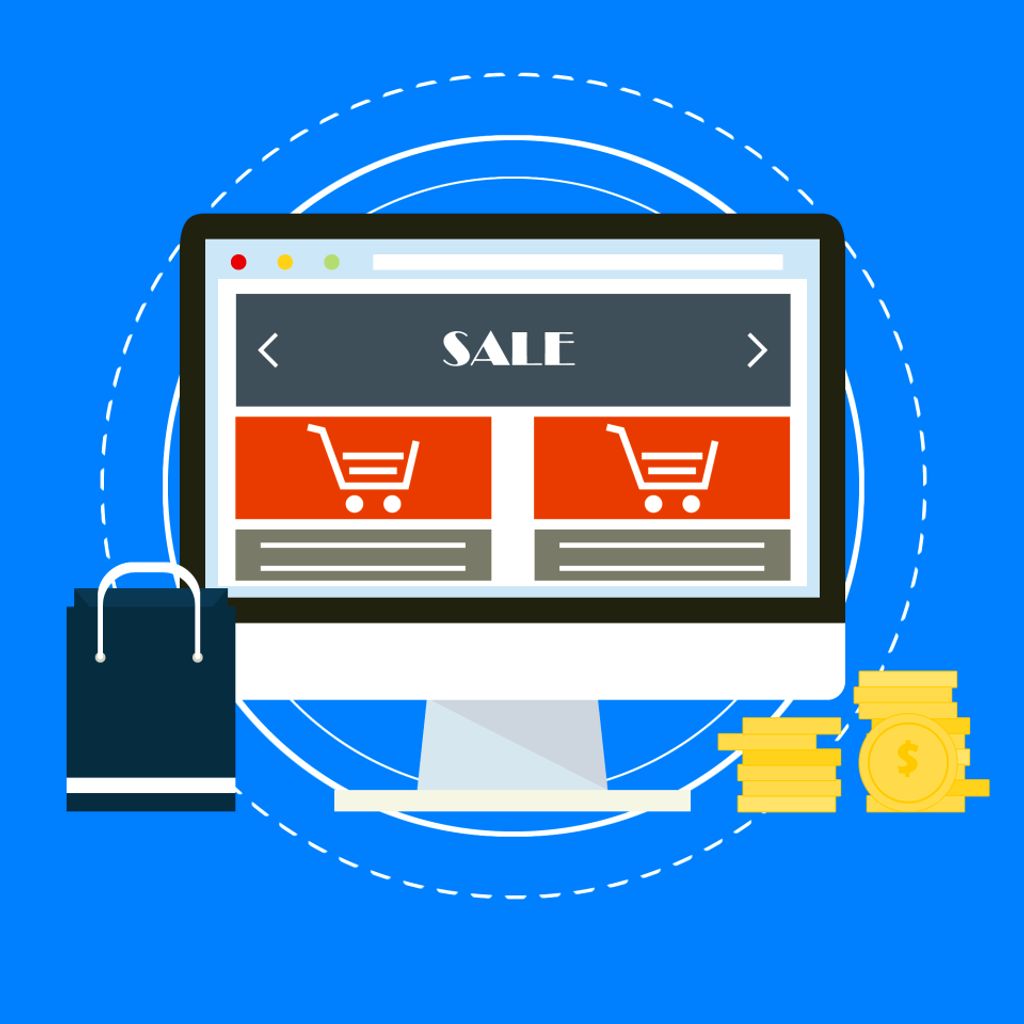Shopify is a popular e-commerce platform that offers a range of features and benefits for businesses. In this article, we will explore the pros and cons of using Shopify, as well as compare it to other e-commerce platforms. Here are the key takeaways:
Key Takeaways
- Shopify is easy to use and set up, with a wide range of themes and templates.
- It offers integrated payment options and a robust app store for additional functionality.
- However, Shopify has limited customization options and charges transaction fees.
- There is a monthly subscription cost and a dependency on Shopify’s platform.
- When compared to other e-commerce platforms like WooCommerce, BigCommerce, and Magento, Shopify has its own unique advantages and disadvantages.
What is Shopify?

Overview of Shopify
Shopify is a complete eCommerce platform that provides solutions in a single platform. It allows you to create and customize your online store, manage products and inventory, process payments, and track orders. With Shopify, you have access to a range of themes that can be customized to fit your brand and design preferences. Additionally, Shopify offers developers full access to CSS, HTML, and Liquid, its coding language, allowing for advanced customization. The platform is cloud-based and hosted, meaning you can access it from anywhere, making it convenient for business owners on the go.
Key features of Shopify
Shopify offers a range of key features that make it a popular choice for e-commerce businesses. One of the standout features is the easy-to-use admin area, which allows users to manage their online store with ease. Additionally, Shopify provides a great selection of themes that can be customized to fit the brand’s aesthetic. The theme customizer tool allows users to make changes to their website’s design without any coding knowledge. Another advantage of Shopify is its large app store, which offers a wide range of plugins and extensions to enhance the functionality of the online store.
Benefits of using Shopify
Shopify offers a range of benefits that make it an ideal choice for creating and maintaining an online store. One of the major advantages of Shopify is its user-friendly interface, which allows anyone with basic website knowledge to develop a website without the need for coding skills. Additionally, Shopify provides everything you need to showcase your products and make sales, including built-in software, hosting, and plugins like SEO tools. Shopify also offers a robust app store, allowing you to enhance your store’s functionality with various plugins and apps.
In addition to its ease of use, Shopify offers several other advantages. It provides customizable themes and templates, allowing you to create a unique and visually appealing store. Shopify also offers integrated payment options, making it easy for customers to make purchases. Furthermore, Shopify’s compatibility with various options for making money, such as discounts, multi-currency selling, and the Shopify Fulfillment Network, provides opportunities for maximizing sales and reaching a wider audience.
Overall, Shopify is a comprehensive eCommerce tool that offers a user-friendly interface, a wide range of features, and opportunities for growth and success in online selling.
Pros of Shopify

Easy to use and set up
Shopify is known for its user-friendly interface and easy setup process. Unlike other e-commerce platforms, Shopify offers a seamless experience for beginners and experienced users alike. The main interface consists of a menu on the left, which centers the content you click on. This makes navigation and editing a breeze. Additionally, Shopify provides step-by-step guides to assist users in setting up their online store. The platform also offers a drag-and-drop builder, allowing users to easily edit and customize their store’s layout. Overall, Shopify’s ease of use makes it a popular choice for entrepreneurs and small businesses.
Wide range of themes and templates
One of the major advantages of using Shopify is its wide range of themes and templates. With over 1,000 themes to choose from, including some free options, you can easily find a design that suits your store’s aesthetic. These themes are available through various channels, such as the Shopify Theme Store, marketplaces like ThemeForest, and directly from developers. It’s recommended to choose a fast-loading Shopify theme to ensure optimal performance.
Shopify also excels in theme customization. Their theme customizer is one of the best in the industry, allowing you to personalize your theme to fit your business and brand. You can customize various elements, including the homepage layout, colors, fonts, and more. This level of customization gives you the flexibility to create a unique and tailored online store.
In summary, Shopify’s wide range of themes and templates, along with its robust theme customization options, make it a top choice for businesses looking to create a visually appealing and customized online store.
Integrated payment options
Shopify offers a wide range of integrated payment options for its users. All Shopify plans come with Shopify Payments, a fully integrated merchant services processor for card payments. This processor is compatible with Shopify POS, allowing users to accept card payments in person. The processing rates for in-person payments vary depending on the plan, ranging from 2.4% to 2.7%. Additionally, with Shopify POS Pro, users have the flexibility to choose from over 100 payment providers, including Worldpay, 2Checkout, Amazon Pay, and more. This extensive selection of payment options sets Shopify apart from other POS systems. Customers can also have their shipping address logged in their account for future orders, and receipts can be emailed or printed.
Robust app store
One of the standout features of Shopify is its robust app store. With over 3,000 apps available, Shopify offers a wide range of solutions to enhance your online store. These apps cover various categories, including product sourcing, marketing, and order management. Whether you need to improve your store’s SEO, streamline your inventory management, or integrate with third-party platforms, you can find an app in the Shopify app store to meet your needs. The app store allows third-party developers to create and sell apps, ensuring a diverse and constantly expanding selection of tools and features for Shopify users.
Cons of Shopify

Limited customization options
Customization on Shopify is generally very theme-dependent. Some Shopify themes are extremely minimal, while others are more complex with a wide range of features, tools, and plugins. While Shopify is easy to use and get started with, accessing more technical features for SEO purposes may require workarounds. It’s important to note that Shopify does offer apps for additional functionality and customization, but these are often paid options. Overall, the level of customization on Shopify may be limited compared to other e-commerce platforms.
Transaction fees
When using Shopify, you may incur transaction fees for payments that are not processed through Shopify Payments. The transaction fees vary depending on the pricing plan you choose. Here is a breakdown of the transaction fees for each plan:
- Shopify Basic: 2%
- Shopify Standard: 1%
- Shopify Advanced: 0.5%
To help you estimate the potential costs of using Shopify, there is a Shopify fee calculator available. Keep in mind that these transaction fees can add up, so it’s important to consider them when deciding on a pricing plan.
Monthly subscription cost
One of the considerations when using Shopify is the monthly subscription cost. Shopify operates on a subscription model with different tiers and varying features. The basic plan starts at $29 per month for annual billing and is suitable for new businesses. More advanced plans, such as the $299 per month plan, cater to growing businesses with additional features. It’s important to note that all plan prices are paid annually. Additionally, if you want your own domain name without the brand name Shopify in your URL, it costs an additional $14 per year. It’s essential to carefully consider your business needs and budget when choosing a Shopify plan.
Dependency on Shopify’s platform
One of the potential drawbacks of using Shopify is the dependency on the platform itself. Since Shopify is a hosted solution, your online store is built on their infrastructure and relies on their servers for performance and uptime. While this can be convenient for beginners or those who don’t want to deal with technical aspects, it also means that you have limited control over the backend of your store. If Shopify experiences any downtime or technical issues, it can directly impact your store’s availability and functionality. Additionally, since you’re using Shopify’s platform, you’re bound by their terms and conditions, which may restrict certain customization options or integrations.
Shopify vs Other E-commerce Platforms

Comparison with WooCommerce
When comparing Shopify with WooCommerce, one key difference is the level of customization. WooCommerce offers full customization, allowing users to tailor every aspect of their online store. This flexibility is a significant advantage for those who already have a WordPress site and are familiar with its ecosystem. On the other hand, Shopify’s strength is in its focused approach to eCommerce, including payment processing, inventory management, and marketing tools. This makes Shopify an excellent choice for those seeking an all-in-one solution that requires minimal technical oversight.
In terms of popularity, WooCommerce leads with a substantial share, powering 8.9% of all websites, showcasing its widespread adoption, particularly among WordPress users. Shopify follows closely, used by 4.1% of all websites, thanks to its user-friendly interface and comprehensive set of built-in tools.
When it comes to ease of use and setup, Shopify is designed for the general public and can be optimized for search in a few hours. However, it is less customizable than WooCommerce due to it being a closed platform. On the other hand, WooCommerce is more suitable for programmers and designers who prefer a high level of customization.
In summary, both Shopify and WooCommerce have their strengths and weaknesses. Shopify offers a user-friendly experience and a wide range of built-in features, making it a popular choice for many entrepreneurs and businesses. WooCommerce, on the other hand, provides full customization and is favored by those who already have a WordPress site. Ultimately, the choice between the two depends on the specific needs and preferences of the user.
Comparison with BigCommerce
When comparing Shopify with BigCommerce, there are a few key differences to consider. While both platforms offer user-friendly experiences for building and managing online stores, Shopify has some distinct advantages.
Firstly, Shopify provides an extensive app store, offering a wide range of additional functionality to enhance your store’s capabilities. This allows you to easily customize and expand your online store to meet your specific needs.
Secondly, Shopify offers integrated payment options, making it convenient for customers to complete their purchases without leaving your website. This seamless checkout process can help improve conversion rates and provide a smoother shopping experience.
Lastly, Shopify has a robust app store, where you can find a variety of third-party apps to further enhance your store’s functionality. These apps can help you streamline operations, optimize marketing efforts, and improve customer engagement.
Overall, while BigCommerce is a solid platform, Shopify’s extensive app store, integrated payment options, and robust app ecosystem make it a compelling choice for businesses looking to create and manage successful online stores.
Comparison with Magento
When comparing Shopify with Magento, there are several key differences to consider. Magento is highly customizable and scalable, making it a great choice for large enterprises with complex ecommerce needs. It offers an open-source community edition and has a robust feature set. However, Magento also comes with higher development and maintenance costs, a steeper learning curve, and may require dedicated hosting. On the other hand, Shopify is known for its ease of use and set up, making it beginner-friendly. It offers a wide range of themes and templates, integrated payment options, and a robust app store. While Shopify may have limited customization options compared to Magento, it provides a more user-friendly experience and requires minimal technical oversight.
Conclusion
In conclusion, Shopify is a powerful and user-friendly ecommerce platform with a wide range of features and tools. It offers an easy-to-use admin area, a great theme selection, and a customizable theme editor. The platform also provides bulk editing capabilities and a stock image library. However, there are some drawbacks to consider, such as transaction fees and the higher cost of larger plans. The collections system could also be easier to use, and the order management features are basic. Despite these limitations, Shopify remains a popular choice for businesses looking to sell online and in person. It offers the ability to sell unlimited products, access to abandoned cart recovery features, shipping discounts, and fraud analysis. Overall, Shopify is a reliable option for scaling your business and offers 24/7 support to assist you along the way.
Frequently Asked Questions
Is Shopify easy to use?
Yes, Shopify is known for its user-friendly interface and easy setup process.
Can I customize my Shopify store?
While Shopify offers some customization options, it does have limitations compared to other platforms.
Are there transaction fees on Shopify?
Yes, Shopify charges transaction fees for using external payment gateways.
What are the benefits of using Shopify?
Some benefits of using Shopify include a wide range of themes and templates, integrated payment options, and a robust app store.
Can I sell unlimited products on Shopify?
Yes, Shopify allows you to sell unlimited products on their platform.
Is Shopify suitable for beginners?
Yes, Shopify is beginner-friendly and offers 24/7 support to help users get started.




